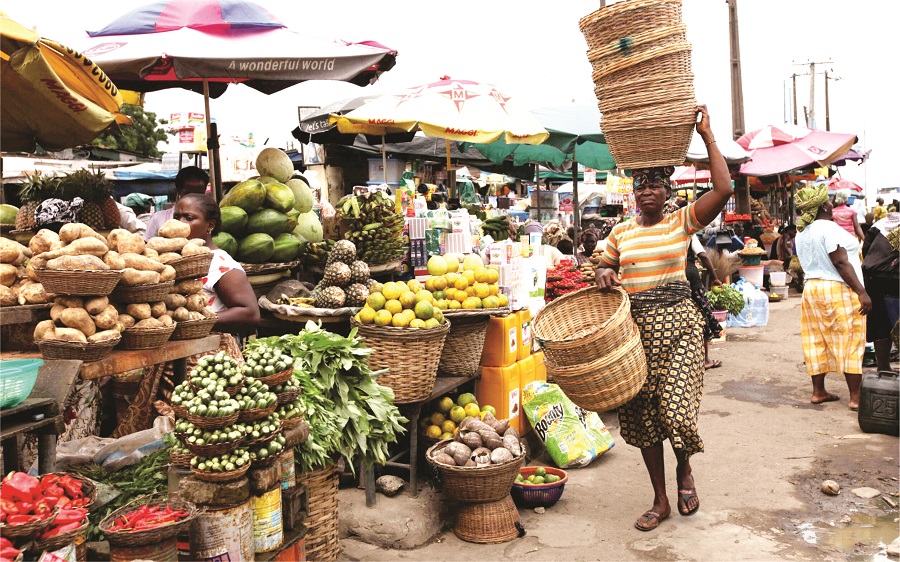Nigeria’s food inflation rate in October has risen to 23.72 per cent which is 5.39 per cent higher compared to the rate recorded in October 2021 (18.34 per cent), report by the National Bureau of Statistics has shown.
This is just as the country’s headline inflation figure rose to 21.09 per cent, a new 17-year high.
- Wike, Adeleke, Yahaya Bello, other politicians who turned ‘entertainers’ through dancing
- PHOTOS: Buhari leads governors, senators to Jos as Tinubu kicks off campaign
The bureau stated that flood inflation was caused by increases in prices of bread and cereals, food products like potatoes, yams and other tubers, oil and fat.
On a month-on-month basis, it said the food inflation rate in October was 1.23 per cent, this was a 0.21 per cent decline compared to the rate recorded in September 2022 (1.43 per cent).
It stated that the decline was due to the reduction in prices of some food items like tubers, palm oil, maize, beans, and vegetables.
Meanwhile, it said the headline inflation shows on a month-on-month was 1.2 per cent which is 0.11% lower than the rate recorded in September 2022 (1.36 per cent).
“The percentage change in the average CPI for the twelve months ending October 2022 over the average of the CPI for the previous twelve months period was 17.86 per cent, showing a 0.91 per cent increase compared to the 16.96 per cent recorded in October 2021.”
It, however, said that over the past three months, there has been a decline in headline inflation on a month-on-month basis due to a drop in the changes in the food index influenced by the harvesting season.
It added that the increase was owing to the disruption in the supply of food products, increase in cost of importation due to the persistent currency depreciation and general increase in the cost of production.

 Join Daily Trust WhatsApp Community For Quick Access To News and Happenings Around You.
Join Daily Trust WhatsApp Community For Quick Access To News and Happenings Around You.


